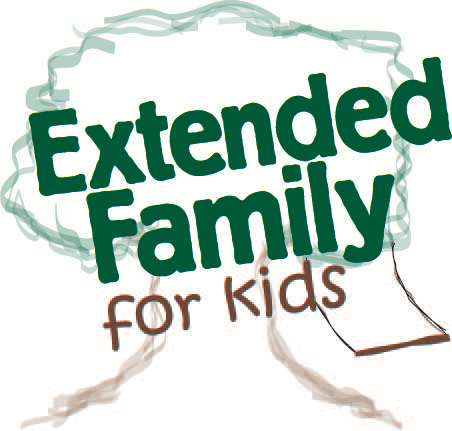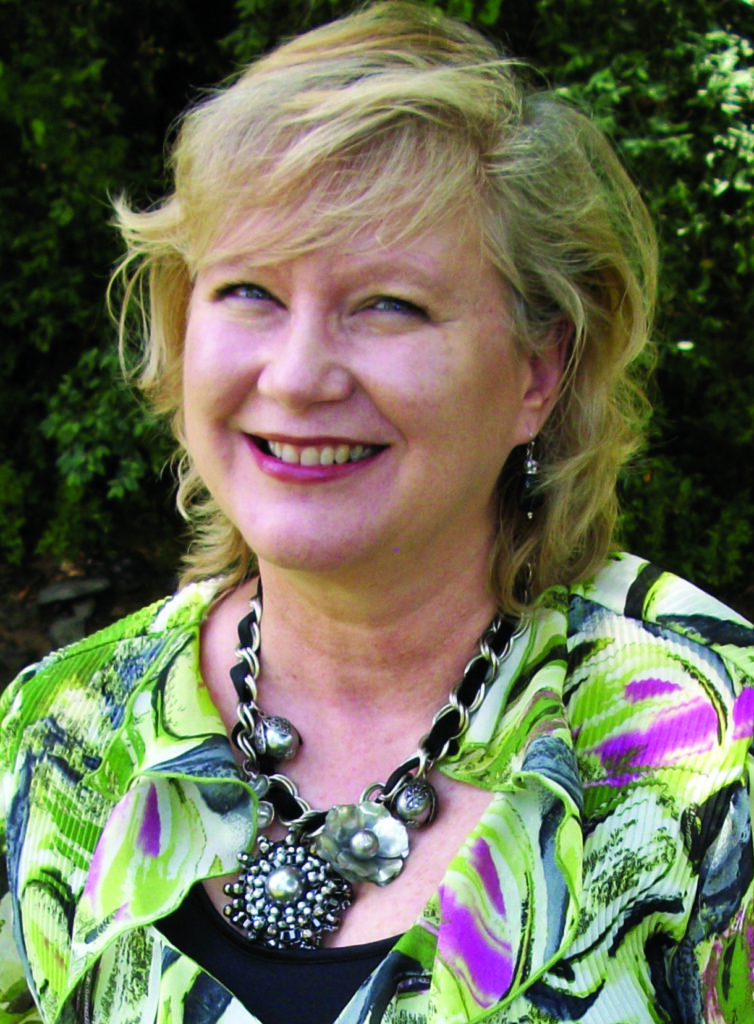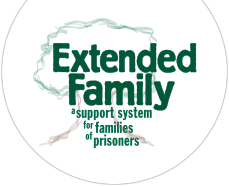For Kids - FAQs
What is Extended Family for Kids?
The EFK program gives children the tools they need to deal with issues that come with having a loved one incarcerated. They interact with others who are just like them, and have a lot of fun along the way, with lessons on:
- “It’s not my fault”
- Stress Busters
- Healthy ways to communicate when angry
- Their own choices in life
- Looking toward their future
The focus is on the child, not the incarcerated person! That focus is what has made Extended Family for Kids so successful. For a summary of EFK sessions, visit our For Kids – Program Summary page.
The EFK program is contained in an Extended Family for Kids Curriculum Guide, which can be purchased through our Online Store. The Extended Family for Kids Curriculum Guide includes detailed directions for leading each session; student handouts; activities; student Feedback Forms; and much more.
Is Extended Family for Kids evidence-based?
Yes! According to an independent Impact Study, the Extended Family for Kids program can help students increase their academic levels and reduce disciplinary referrals. Click here for Cebellos Impact Study pdf file.
Where are Extended Family for Kids programs held?
EFK programs are held in public schools, community centers, and churches – anywhere a group program can be facilitated. They are started by trained Extended Family for Kids program leaders. Others have started programs using the Extended Family for Kids Curriculum Guide alone. To learn how to bring Extended Family for Kids to your community, visit our For Kids – Getting Started page.
Who created Extended Family for Kids?
The Extended Family for Kids curriculum was written and designed by Laure E. Clemons, Extended Family Executive Director. She was assisted by educational professionals Lorie Schmid Conrad, Christy Swansbrough and Elaine Thomas. In 2006-07, Clemons led a model Extended Family for Kids program in Summerville Middle School, Summerville, Ga. In 2008 the Extended Family for Kids Curriculum Guide was published, © 2008 Extended Family.
Who can lead an Extended Family for Kids program?
Anyone who has a heart for children and is approved, and screened, by the organization sponsoring an EFK group. It is recommended that the leader have experience in group facilitating. An Extended Family Program Leader facilitates brainstorming sessions, hosts guest speakers, and maintains an orderly learning process throughout the nine sessions. It is helpful to have more than one adult in the room. We suggest the Program Leader have at least one assistant.
Does Extended Family for Kids take the place of counseling or therapy sessions?
No! Extended Family for Kids is not meant to be therapy or counseling. We recognize that EFK Program Leaders are not trained counselors, and Extended Family cautions against trying to fill a counselor role. Used as written, Extended Family for Kids’ sessions are interactive, fast-paced, and topic based. There is not a lot of time for discussing feelings or what to do with those feelings. There is time to discuss choices we make, and how to make better choices than our loved ones did; to learn “it’s not my fault!”; and to apply these lessons in our own lives.
What age group benefits from Extended Family for Kids?
EFK is for students in grades 2 through 12. Adults have gone through the program as well! EFK could even help incarcerated teens and adults, giving them communication skills to use with their children and family members on the outside.
Is Extended Family for Kids community-based or faith-based?
Extended Family for Kids is community-based. The model program was developed in a Chattooga County, Georgia middle school in 2007. Both community-based and faith-based organizations have incorporated EFK into their programs for children.
Extended Family for Kids, © 2008 Extended Family.

Welcome to the world of Extended Family for Kids.

- “I learned you don’t have to let a family member in jail hold you back.”
- “I learned that we don’t have to do their time.”
- “I learned I am not alone or without hope.”
- “I learned it’s not my fault!”
I can’t tell you how this program works – I can just tell you that it does.
I have seen children transformed before my very eyes. They let go of the stigma of having a loved one incarcerated. They form friendships that last long after their EFK group is over. Best of all, they learn how to say, “It’s not my fault!”
Extended Family for Kids is making a difference.
Author, Extended Family for Kids

